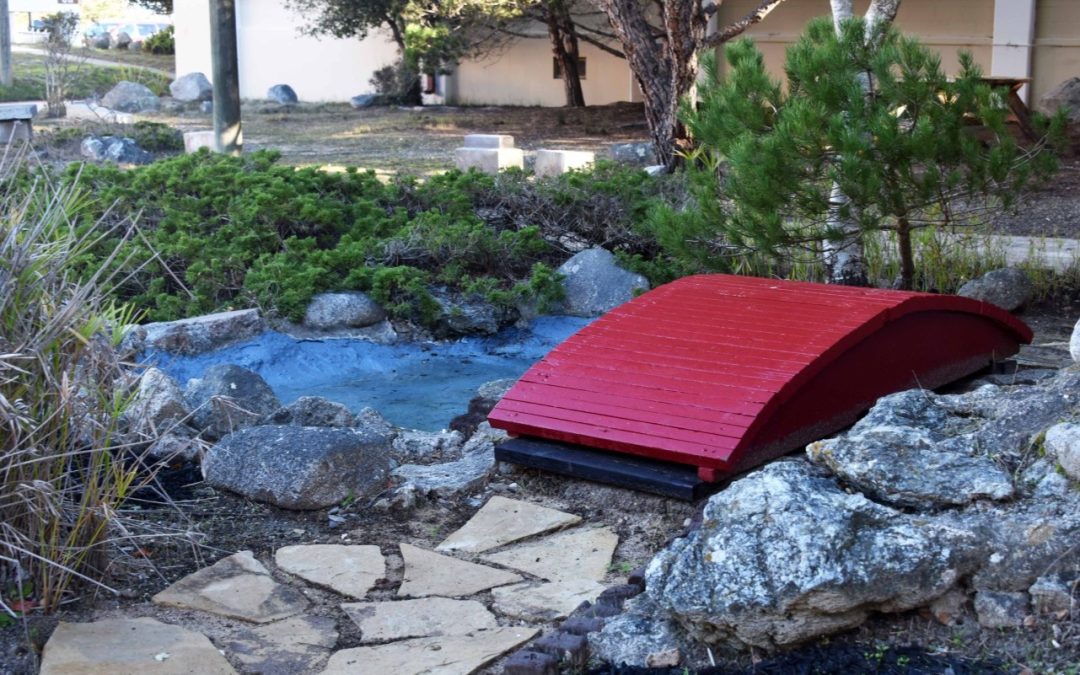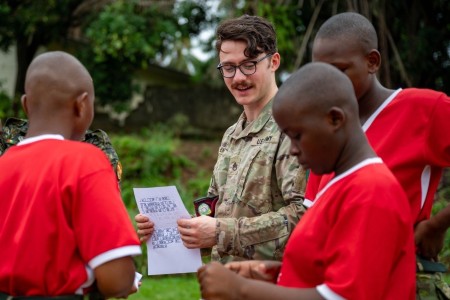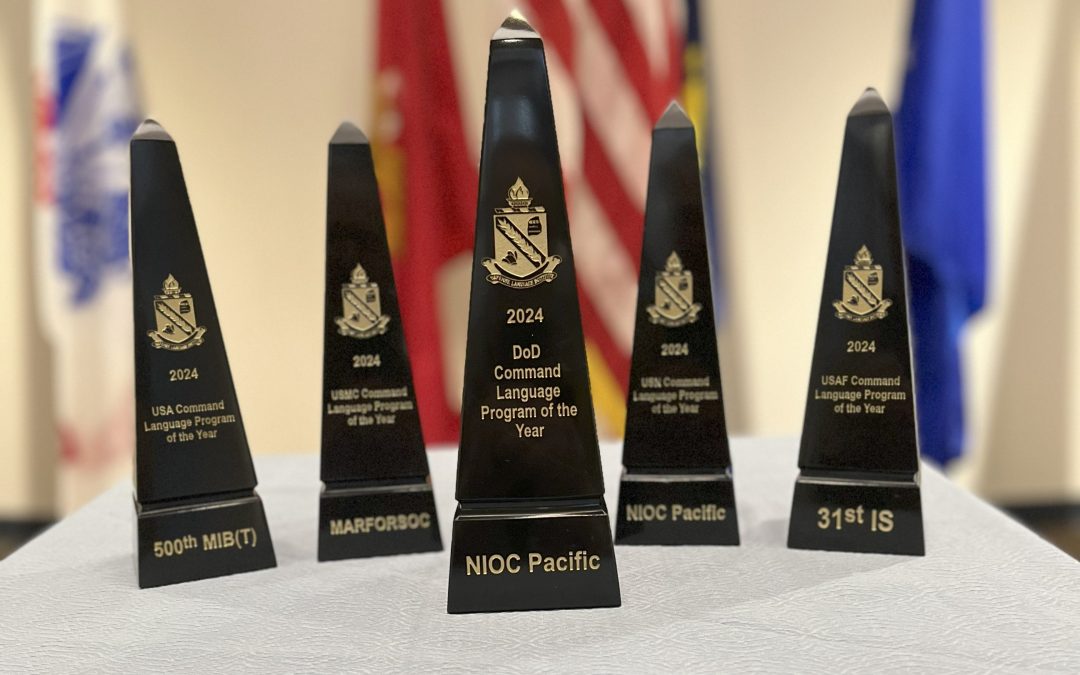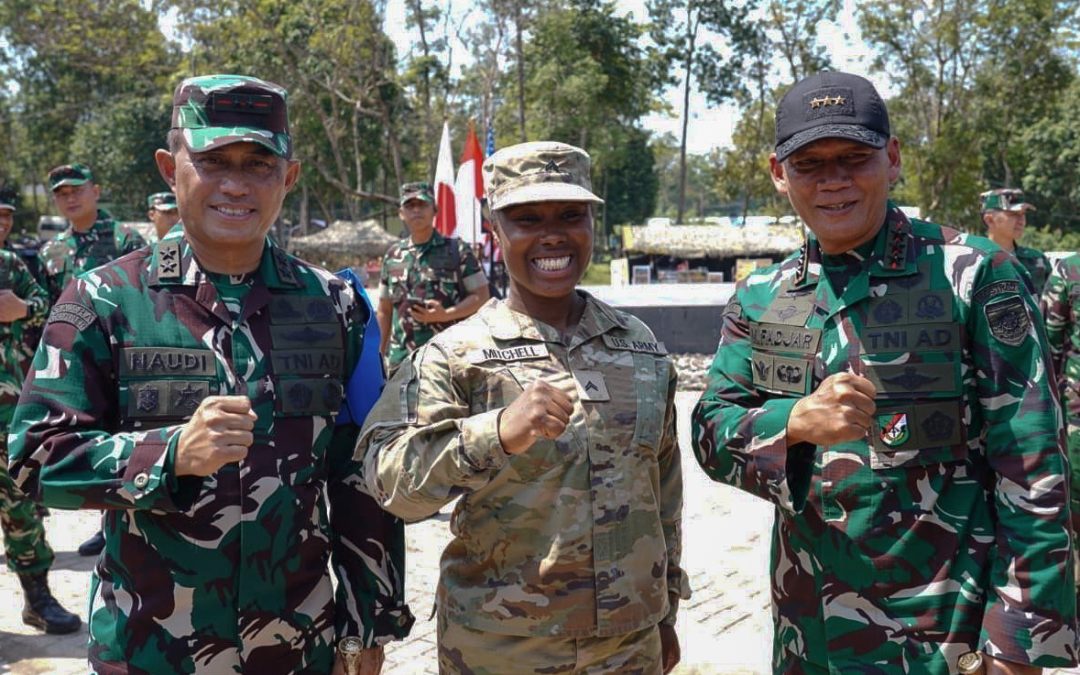By Patrick Bray
DLIFLC Public Affairs

Retired U.S. Army Brig. Gen. Matthew Brand spoke about the language enabled FAO Jan. 28. He served as a defense attaché in the Republic of Georgia and is a Russian linguist. (Photo by Patrick Bray, DLIFLC Public Affairs)
MONTEREY, Calif. – The Defense Language Institute Foreign Language Center hosted the Joint Foreign Area Officer Course Jan. 25-29 at the Weckerling Center on the Presidio of Monterey, California.
FAOs, who come from the four branches of the U.S. military, are regionally focused and are considered experts on political-military issues. Once their FAO training is completed, they are expected to serve as defense attachés, security cooperation officers and political-military planners worldwide.
Retired U.S. Army Brig. Gen. Matthew Brand spoke about the language enabled FAO Jan. 28. He served as a defense attaché in the Republic of Georgia and is a Russian linguist. He also served as the former deputy chief of staff for strategic plans and policy at NATO, his final assignment.
“We are training you in this language so you can talk to people. You cannot get access to somebody if you can’t speak their language,” said Brand. “The most important tool in your kit is your language.”
As part of their training path, a FAO could spend anywhere between 26 weeks to 64 weeks in class, seven hours per day at DLIFLC studying a foreign language.

Two Foreign Area Officer attending the Defense Language Institute Foreign Language Center practice listening to Arabic in their classroom at the institute’s Middle East School II Jan. 27. Retired U.S. Army Brig. Gen. Matthew Brand encouraged FAOs in their language learning during the Joint Foreign Area Officer Course Jan. 28. (Photo by Patrick Bray, DLIFLC Public Affairs)
“The most important person you should know is yourself,” said Brand, who recommends that the FAOs become familiar with the Myers-Briggs Type Indicator questionnaire to assist in their language learning.
In theory, Myers-Briggs determines how humans process information and which of the four psychological functions is dominant for one person most of the time – sensation, intuition, feeling and thinking.
“How does this apply to language learning? One thing we all have in common is we learn every day. If the language learning piece is tough for you, try a different technique,” said Brand.
Brand also spoke about empathy, understanding and perspective and how these can help them be better FAOs.
“We’re going to ask you to learn more than foreign language. Step outside your culture. Learn something better and new,” said Brand. “Exploit things you’re good at and work on things you’re not.”
Brand’s final advice to the FAOs was to assimilate all the wisdom from the guest speakers at the Joint Foreign Area Officer Course and take it with them abroad, but if they ever find something that they do or learned does not work, “change it to something that does.”




